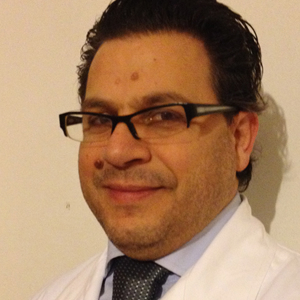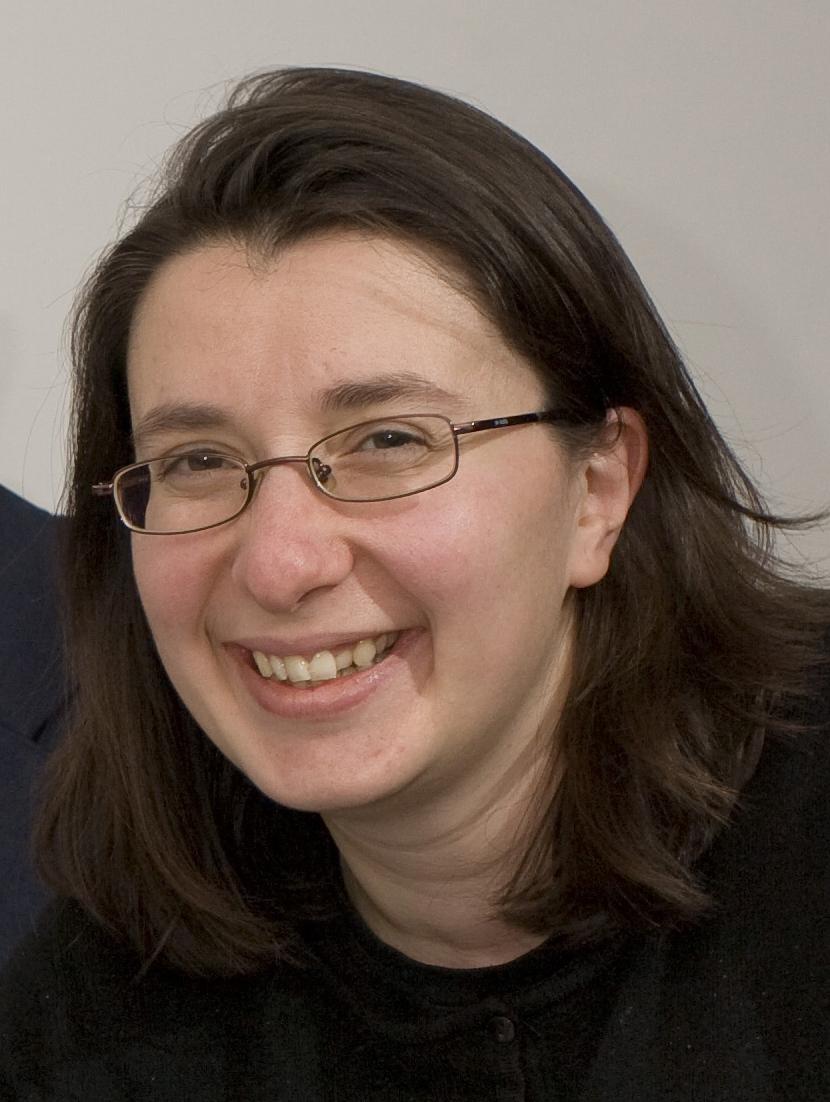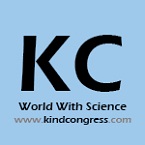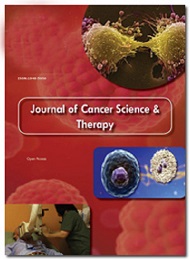Welcome to the 34th Experts Meet on Cancer Research & Therapy! For over three decades, our conference has been a beacon of scientific discovery and collaboration, driving progress in cancer research and therapy globally. This milestone event presents a comprehensive program showcasing the latest research, trends, and challenges in the field. We're excited to welcome experts and delegates from around the world, fostering diverse perspectives and interdisciplinary cooperation to improve patient outcomes.
For this special 34th edition, we have curated a comprehensive program that reflects the latest advancements, emerging trends, and pressing challenges in cancer research and therapy. From cutting-edge scientific symposia and keynote lectures by renowned thought leaders to interactive workshops and poster presentations showcasing novel findings, the conference offers a rich tapestry of educational opportunities for all attendees.
Moreover, we are delighted to host an international cohort of experts and delegates, representing a mosaic of perspectives, experiences, and expertise from across the globe. This diversity enriches our discussions, broadens our horizons, and fosters collaborations that transcend geographical boundaries, as we work together towards our shared goal of improving patient outcomes and enhancing the quality of life for individuals affected by cancer.
In closing, we extend our deepest gratitude to all our participants, speakers, sponsors, and partners for their invaluable contributions to the success of the 34th Experts Meet on Cancer Research & Therapy. Together, let us seize this momentous opportunity to learn, connect, and inspire one another, as we continue our journey towards a healthier, more vibrant future for all.
Join us at the 34th Experts Meet on Cancer Research & Therapy, taking place on December 11-12, 2024, in the heart of Paris, France. This prestigious conference is a premier gathering for oncologists, researchers, medical professionals, and industry leaders dedicated to advancing the field of cancer research and therapy. Attendees will have the opportunity to engage with cutting-edge research, participate in interactive workshops, and network with leading experts from around the world. The event will feature inspiring keynote speakers, accredited educational sessions, and an exhibition of the latest innovations in oncology. Don’t miss the chance to be part of this influential event in the vibrant and historic city of Paris. Register now to secure your place at the forefront of cancer research and therapy. The conference is expected to attract a large number of researchers, healthcare professionals, oncologists, and industry experts from around the world.
Conference Highlights
The conference will feature a range of keynote speeches, panel discussions, and interactive sessions led by some of the leading experts in the field of oncology. Topics will include:
-
Latest advances in cancer research
-
Emerging therapies
-
Clinical trials
-
Cancer prevention and screening
-
Patient care and support
Networking Opportunities
Attendees will have the opportunity to network with fellow professionals and learn about the latest technologies and innovations in cancer diagnosis and treatment. The conference will also provide a poster session where researchers can present their latest findings and engage in discussions with attendees.
The 34th Experts Meet on Cancer Research & Therapy, themed “Innovations and Integrations: Advancing Cancer Research and Treatment for a Global Impact” addresses the escalating global challenge of cancer. As cancer cases rise and the disease becomes increasingly complex, the need for groundbreaking research and novel treatments is critical. This premier conference offers a unique platform for researchers, clinicians, and healthcare professionals to unite and tackle the multifaceted challenges of cancer. Attendees will benefit from a diverse program featuring keynote addresses, plenary sessions, and interactive workshops on cutting-edge topics such as advanced therapeutic techniques, the latest diagnostic technologies, and strategies for cancer prevention and management.
The event also emphasizes networking and collaboration, providing opportunities to connect with peers, share insights, and discuss best practices in cancer research and therapy. Participants will gain exposure to pioneering developments in the field, including advancements in artificial intelligence, precision medicine, and genomics, all aimed at enhancing our understanding and treatment of cancer.
Join us at the 34th Experts Meet to be at the forefront of cancer research and therapy, engage with leading experts, and contribute to shaping the future of cancer care.
Who Should Attend
34th Experts Meet on Cancer Research & Therapy will be useful to participants from both the industry and academia working in all domains of healthcare sectors. Target audience includes:
-
Researchers
-
Scientists
-
Healthcare experts
-
Epidemiologists
-
Physicians
-
Nurse practitioners
-
Healthcare analysts
-
Business delegates
-
Young researchers
-
Advertising and promotion agency executives
-
Professionals in the media sector
-
Professors
-
Surgeons
-
Fellowship holders
-
Surgical technicians
-
Anesthesiologists
-
Medical students
-
Healthcare and pharmaceutical companies
Sessions and Tracks:
1) Precision Medicine and Personalized Therapies
Precision medicine and personalized therapies in cancer involve tailoring treatments based on a patient’s unique genetic, environmental, and lifestyle factors. By analyzing genetic mutations and biomarkers, these approaches enable targeted therapies and adaptive treatment plans, aiming to improve efficacy and minimize side effects.
2) Translational Research and Clinical Applications
Translational research accelerates the process of turning lab discoveries into real-world cancer treatments by conducting clinical trials and developing biomarkers. This approach ensures that new therapies are effectively tested and refined, bridging the gap between scientific research and patient care.
3) Anti-cancer Drug Discovery
Anti-cancer drug discovery involves identifying and developing novel compounds that specifically target cancer cells or their supporting mechanisms. This process includes high-throughput screening, understanding drug mechanisms, and advancing promising candidates through rigorous preclinical and clinical testing to ensure they effectively treat cancer with minimal side effects.
4) Cancer Diagnostics and Emerging Technologies
Cancer diagnostics and emerging technologies leverage innovations such as liquid biopsies, advanced imaging techniques, and AI-driven analyses to improve early detection and precise diagnosis. These advancements enhance the ability to monitor tumor dynamics, tailor treatments, and ultimately improve patient outcomes through more personalized and timely interventions.
5) Cancer screening
Cancer screening aims to identify cancer at an early, more treatable stage in asymptomatic individuals using methods like mammograms, colonoscopies, and low-dose CT scans. Early detection through screening improves the likelihood of successful treatment and survival by catching cancers before they progress.
6) Treatment of Cancer
Cancer treatment involves a combination of therapies such as surgery, radiation, chemotherapy, targeted therapy, and immunotherapy. The choice of treatment depends on the cancer type, stage, and individual patient factors, aiming to eliminate cancer cells while minimizing harm to healthy tissue.
7) Cancer Prevention and Early Detection
Cancer prevention and early detection combine lifestyle modifications, preventive vaccinations, and cutting-edge screening techniques to reduce risk and identify cancer at its most manageable stage. This proactive approach enhances the ability to intercept cancer early, optimizing treatment outcomes and improving survival rates.
8) Advanced Therapies in Cancer
Advanced therapies in cancer, including targeted therapies, immunotherapy, and CAR-T cell therapy, harness cutting-edge technologies to precisely attack cancer cells while sparing healthy tissue. These innovative treatments offer personalized approaches, significantly improving efficacy and minimizing side effects.
9) Cancer Genomics and Epigenetics
Cancer genomics and epigenetics examine genetic mutations and epigenetic changes that influence tumor development and progression. This research enables the creation of targeted therapies and personalized treatment strategies by revealing how these molecular alterations drive cancer, leading to more effective and tailored therapeutic options.
10) Gynecologic Cancer Prevention and Control
Gynecologic cancer prevention and control blend proactive measures such as HPV vaccination, strategic screenings, and tailored lifestyle adjustments to combat cancers like cervical, ovarian, and endometrial. This multifaceted approach not only reduces risk but also empowers early detection and targeted intervention, enhancing overall care and outcomes.
11) Cancer Immunology
Gynecologic cancer immunology delves into the intricate dance between the immune system and cancers such as cervical, ovarian, and endometrial. By unraveling these complex interactions, researchers aim to craft innovative immunotherapies that bolster the body's innate ability to seek out and destroy cancer cells, offering a cutting-edge approach to treatment.
12) Cancer Vaccines
Cancer vaccines are designed to activate the immune system to recognize and combat cancer cells. Preventive vaccines, such as the HPV vaccine, protect against virus-induced cancers, while therapeutic vaccines stimulate an immune response against existing tumors. These innovative approaches aim to reduce cancer incidence and improve treatment outcomes by leveraging the body's natural defense mechanisms.
13) Drug Resistance and Overcoming Challenges
Drug resistance in cancer occurs when cancer cells adapt to evade the effects of treatment, complicating therapy. Overcoming this challenge involves strategies like combination therapies, which use multiple drugs to target different pathways, and personalized medicine, which tailors treatments based on the genetic makeup of the tumor, aiming to outmaneuver resistance mechanisms and improve patient outcomes.
14) Ethical and Regulatory Issues in Cancer Research
Ethical and regulatory issues in cancer research focus on securing informed patient consent, protecting data confidentiality, and ensuring fair access to experimental treatments. Adhering to these principles is vital for ethical integrity, maintaining trust, and facilitating the responsible development of new cancer therapies.
15) Cancer Genomics & Metabolomics
Cancer genomics and metabolomics analyze genetic mutations and metabolic changes in tumors to guide personalized treatment. By mapping these alterations, researchers can develop targeted therapies and refine treatment strategies to more effectively combat cancer based on its unique molecular profile.
16) Innovations in Cancer Data and Informatics
Innovations in cancer data and informatics leverage advanced technologies, such as artificial intelligence and big data analytics, to improve cancer research and therapy. These tools enhance data integration, uncover patterns, and drive personalized treatment strategies, optimizing outcomes through more precise and informed decision-making.
17) Cell-Based Therapy
Cell-based therapy involves using modified or engineered cells, such as CAR-T cells, to target and kill cancer cells with high specificity. By reprogramming immune cells or introducing new cell types, this innovative approach aims to enhance the body’s natural ability to fight cancer, leading to more effective and personalized treatment options.
18) Advancement in the Field of Cancer
Advancements in cancer research and therapy include breakthroughs in targeted treatments, immunotherapy, and precision medicine, which personalize care based on genetic and molecular profiles. These innovations are improving early detection, treatment efficacy, and patient outcomes by addressing the complexities of cancer more effectively.
19) Advances in Supportive Care and Symptom Management
Advances in supportive care and symptom management focus on improving the quality of life for cancer patients through innovative approaches like targeted pain relief, nutritional support, and psychological care. These advancements aim to alleviate treatment side effects, manage symptoms effectively, and provide holistic support throughout the cancer journey.
20) Role of Microbiome in Cancer
The microbiome's role in cancer research explores how gut and body bacteria influence tumor development, treatment response, and immune system interactions. Understanding these microbial impacts can lead to new therapeutic strategies and enhance the effectiveness of existing cancer treatments.
Oral presentation: Oral Presentations may include the topics from researches, theoretical, professional or private practices in a concise manner. Individuals with personal experience are also welcome to present personal experiences or narratives which help others in everyday life. Speakers with a 30-minute slot should plan to speak for 20-25 minutes, and Keynote speakers should plan to speak for 40-45 minutes, with the remaining time to be used for questions and discussion by the Session Chair.
Workshop: For workshop presenters also, the topic of the talk will be the same as an Oral presentation with more specialized techniques and detailed demonstration. The generalized time duration for a workshop presentation is about 45-50 minutes. Interested participants can join with their respective team and present the workshop with their research coordinators with special group waivers on registration.
Poster presentation: Student Poster Competition will be organized at the Cancer Research and Therapy 2024 conference is to encourage students and recent graduates to present their original research. Presenters will be given about 5-7 minutes to present the poster including questions and answers. Judges may ask questions during the evaluation of the presentation. This is an opportunity for young scientists to learn about the recent findings of their peers to increase their capacity as multidisciplinary researchers. Poster displays will be in hard copy format of 1x1 M long.
For more details regarding Poster Presentation and Judging Criteria view Poster presentation guidelines.
Webinar: The webinar presentation is designed for those interested attendees who cannot join in person due to schedule conflicts or other obligations. In this option, the presenter may record the presentation and their presentation will be presented in the Webinar presentation session.
E-Poster: e-Poster is also similar to the webinar presentation. In this session, their presentation will be published in the form of a poster in the conference website and the presenter abstract will be published in the conference souvenir and journal with DOI.
Exhibition: Cancer Therapy Meeting Conference 2024 has the opportunity to exhibit the products and services from commercial and non-commercial organizations like Drug manufacturers, Clinical Trial Sites, Management Consultants, Chemists, Pharmacists, Business delegates and Equipment Manufacturers.
To know more about exhibitor booth details and benefits visit WHY TO EXHIBIT WITH US?
Send your queries to cancertherapy@europeconferences.com
Advertisement: The conference program is a valuable resource that all attendees refer again and again as they navigate the conference. Advertising in the conference program is a great way to market and can help you secure long term business.
Send your proposal to cancertherapy@europeconferences.com to know the available advertisement options and prices
Sponsor Cancer Therapy Meeting 2024
Premium Sponsorship package
Additional Sponsorship package
Mail the program manager at cancertherapy@europeconferences.com or WhatsApp on (+44 2045861247) to know more about the sponsorship packages.
The 34th Experts Meet on Cancer Research & Therapy, with the theme "Advancing Cancer Care: To Combat Cancer and Achieve a Cancer-Free World", is expected to attract a large number of participants from the healthcare industry, research institutions, academia, and government organizations. The Congress will provide an opportunity for participants to learn about the latest advancements in cancer research and diagnostics, and to network with experts in the field.
The cancer therapy market has shown robust growth from 2019 to 2024, increasing from $85 billion to a projected $135 billion. This upward trend reflects a series of breakthroughs and approvals that have significantly impacted market expansion. Notable events, such as the major breakthrough in 2019 and the critical approval in 2021, have contributed to this consistent growth. The annual growth rates have varied, with notable peaks in 2022 (10.0%) and a significant jump in 2024 (12.5%), indicating a heightened acceleration in market development.
These figures underscore the dynamic nature of the cancer therapy market, driven by continuous innovation and investment. The market's expansion can be attributed to advancements in treatment methodologies, increased funding for research, and a growing patient population. The projection for 2024 suggests a continued trajectory of growth, highlighting the industry's potential for further breakthroughs and improved therapeutic options. This sustained increase in market size emphasizes the critical role of ongoing research and development in shaping the future of cancer therapy.


















